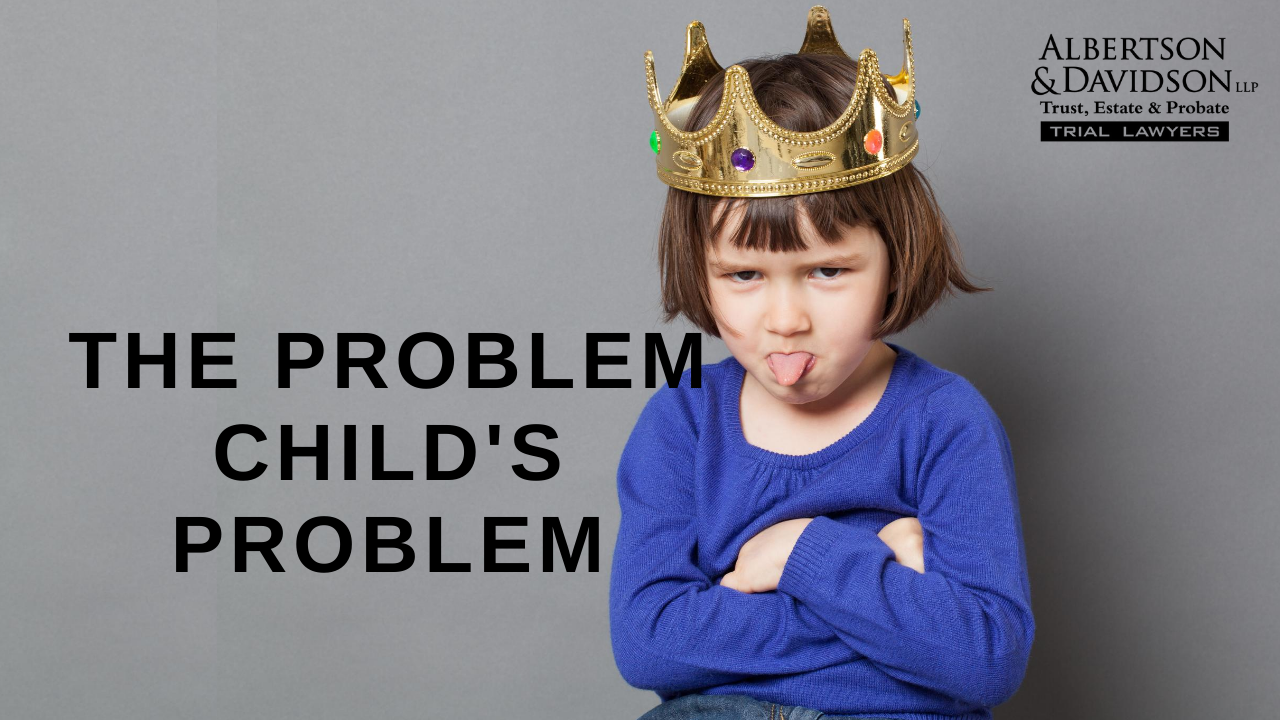
Let’s start with a basic premise of Trust and Will law: children are not entitled to inherit anything. Parents have the right to disinherit a child, provided that, the decision to disinherit is their own. In other words, if someone else forces that decision on the parent, that is wrong. But if the parent freely chooses to disinherit a child, that is fine.
The Challenge of Proving Disinheritance Intentions in Estranged Relationships
The problem with estranged relationship is that it can be very difficult to convince a judge that a disinheritance was based on something other than the parent’s own decision. For example, let’s say that a child hadn’t talked to their father in fifteen years. They got in a huge fight, stopped speaking, and never reconciled before the father’s death. A Trust amendment was done a year before the father died that disinherited the estranged child. Was the amendment the father’s decision, or was the father unduly influence to disinherit the child?
Evaluating Suspicious Circumstances in Trust Amendments
Of course, we have to know more facts to truly answer this question. But the fact that the child and father were estranged for fifteen years is going to make it look as though the decision was intentionally made by the father. In other words, the story of their relationship provides compelling evidence that the father’s disinheritance of the child was reasonable, and probably even intentional. We can make that assumption without knowing any other facts about the case. And that’s the problem with estrangement. It provides a strong assumption against the child before any other facts are known.
Legal Rights and Suspicious Timing in Disinheritance Cases
Let’s consider an opposite example. A child is close with her father. She visits him weekly and helps him with many things he needs, such as shopping and cooking. She is his only child. Six months before the father dies, he is put on hospice and a nurse comes by the house every day. But the child still comes weekly, she even increases her visits to daily. Two weeks before the father dies, and without the child knowing it, the father signs an amendment to his Trust that disinherits the child (even though she was his sole heir in the prior version of the Trust) and leaves the entire estate to the hospice nurse. Was the amendment the father’s decision, or was the father unduly influence to disinherit the child?
Again, we need more fact to truly answer this questions. But this scenario looks very suspicious. Why would the father completely disinherit his daughter in favor of the hospice nurse? Why was this change made only two weeks before father died? His actions appear to be unreasonable, and probably were made without his own, free intent to do so. We can make this assumption without knowing any other facts about the case. And that’s the power of a good relationship. It provides a strong assumption in favor of a child even before any other facts are known.
It is important to point out here that the father has the legal right to completely disinherit his child in favor of anyone (although favoring a caretaker such as the hospice nurse triggers different sections of the Probate Code designed to protect elders in this situation). In other words, parents do not have to be fair in how they leave their assets. But making a radical change so close to death is suspicious. This is even more so when the child and father have a close relationship.
Estranged Children and the Legal Battle to Challenge a Trust or Will
The bottom line: estranged children can still file a lawsuit to challenge a Trust or Will, but it won’t be easy. You have to know that the facts of your relationship will be a hurdle you will have to work hard to overcome.
